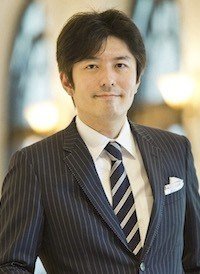International accreditation in Japan and overseas
#MBA #MBA Ranking #Accreditation #International Accreditation
An important reason to achieve and maintain international accreditation is to show to the world that the MBA education at our institution is aligned with the international standards met by other schools around the world. The worth of a degree corresponds with the prestige of the institution that grants it; in fact, it is the graduates of non-accredited school themselves who face difficulty. Why? Corporate recruiters and headhunters would be more knowledgeable if they knew about 50 of the more than 20,000 MBA programs in the world. For example, aside from the very top schools in the world, few are familiar with institutions outside of their own countries. Even those with a passing familiarity may have difficulty judging the value of a degree from an institution overseas.
This problem is as evident in Japan as it is all over the world. For example, MBA schools such as CBS (Denmark), ESADE (Spain), and KOÇ (Turkey) are rated higher than Tokyo University in the world rankings, but most Japanese professionals are unfamiliar with those schools. The same applies to managers in charge of hiring and human resources in countries all over the world: when vetting graduates from unfamiliar business schools, they check them against the list of accredited international schools to confirm the quality of the degrees they have attained.
Although there are also other ways to check the worth of an MBA, such as rankings, accreditation is an important factor in ranking criteria. The FT rankings, for example, only choose from the 5% of business schools that are internationally accredited.
What is an MBA? It is an investment in yourself for the future. The return on that investment should be measured by professional accomplishment, but, with a non-accredited MBA, you may not even be allowed to stand on that playing field. This is why all MBA-granting institutions around the world are working to obtain international accreditation.
Lagging behind the rest of the world, the movement to obtain international accreditation for MBA programs in Japan itself has existed for more than 10 years, and many Japanese universities participated in annual meetings held by international accreditation organizations. Unfortunately, few universities in Japan are able to meet the international standards.
Japanese HEIs changing their organizational structure and taking up the challenge is being seen as evidence of a recent movement to obtain international accreditation in Japan, but in reality, many forward-thinking schools have been trying for a long time. This is also likely due to the increasing value of MBAs as they are understood by companies and society at large.

 Brochure
Brochure
 Information Session
Information Session
 Online Application
Online Application
 MBA Basics
MBA Basics














